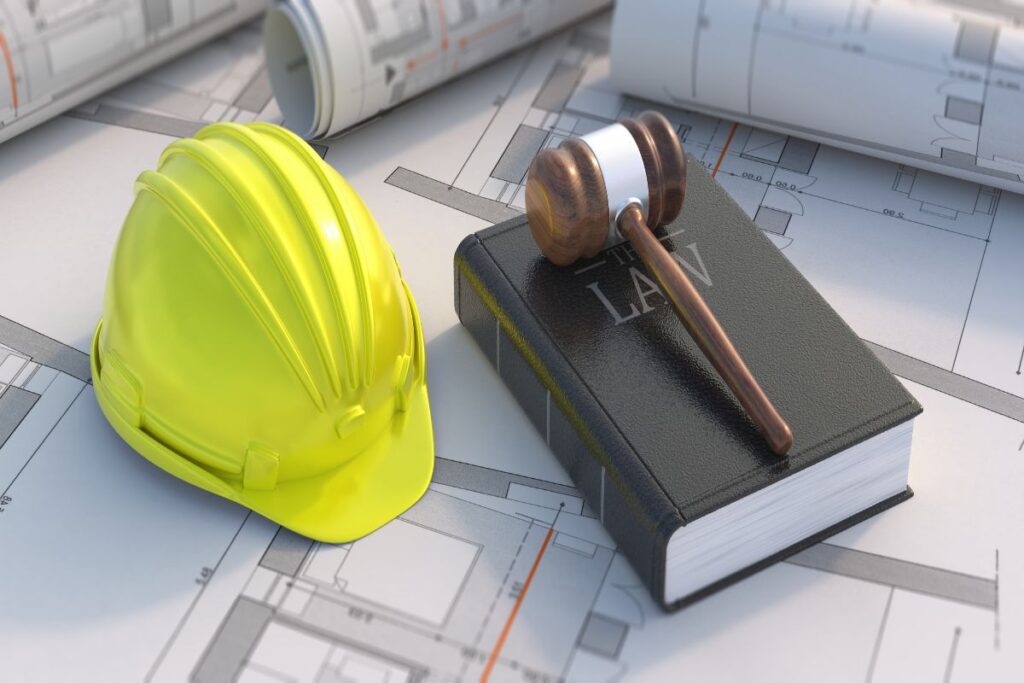Building and construction law is a complex field that encompasses a wide array of legal issues related to the construction of homes and other structures. For homeowners, understanding the intricacies of this law is crucial for not only protecting their investments but also ensuring that their projects comply with local regulations and standards. This guide will delve into various aspects of building and construction law, providing essential information that can help homeowners navigate this often-challenging landscape.
Understanding the Basics of Building & Construction Law
Before diving into specific legal requirements, it is helpful for homeowners to understand the foundational principles of building and construction law. This area of law governs the relationships between parties involved in construction projects, including homeowners, contractors, subcontractors, and suppliers.
Key Terms and Definitions
Familiarizing oneself with key terminology is essential for understanding building and construction law. Below are some common terms that every homeowner should know:
- Contractor: A person or company hired to carry out construction work.
- Subcontractor: A specialized individual or company hired by the contractor to perform a specific task.
- Permit: An official approval from a local authority that is necessary before beginning construction.
- Liability: Legal responsibility for damages or injuries that may occur during the construction process.
- Dispute Resolution: The methods through which disagreements in construction projects are resolved, including arbitration and litigation.
Understanding these terms will provide a solid foundation as you engage with building and construction law. Additionally, being aware of the various types of contracts, such as fixed-price contracts, cost-plus contracts, and time and materials contracts, can further enhance your comprehension. Each type carries its own implications for risk and financial management, which can significantly affect the outcome of a construction project.
The Role of Building & Construction Law
The primary role of building and construction law is to regulate the relationships among all parties involved in construction projects. This involves establishing standards for project execution, ensuring safety compliance, and protecting the rights of homeowners. By understanding these regulations, homeowners can advocate for themselves and their properties more effectively.
Moreover, building and construction law serves to offer protection against negligence and misconduct in construction practices, which can lead to serious safety issues or financial loss. For instance, the law mandates that construction sites adhere to specific safety standards to prevent accidents that could harm workers or the public. Homeowners should be aware of their rights to demand adherence to these safety protocols and can take action if they observe violations. Furthermore, understanding the legal implications of construction delays, cost overruns, and quality disputes can empower homeowners to make informed decisions and protect their investments throughout the construction process.
Legal Requirements for Home Construction
Homeowners must comply with a variety of legal requirements before and during the construction of a home. These requirements are designed to ensure that construction projects are executed safely and in accordance with local laws.
Permits and Licenses
Obtaining the necessary permits and licenses is one of the first steps a homeowner must take before initiating construction. Different jurisdictions have varying regulations regarding permits, but typically, homeowners will need to secure:
- Building Permit: An essential document that authorizes you to begin construction.
- Zoning Permit: Ensures that your construction project complies with local zoning laws.
- Environmental Permits: May be required if your project could impact protected resources.
Failing to obtain the proper permits can lead to fines, forced cessation of work, or even legal action. Therefore, homeowners should always check local regulations before starting any construction project. Additionally, it is advisable to consult with local building authorities or a legal expert to navigate the complexities of the permitting process efficiently. This proactive approach can save time and resources, preventing potential setbacks during construction.
Building Codes and Standards
Building codes are a set of guidelines established by local governments that outline the minimum acceptable standards for construction. These codes ensure safety, accessibility, and sustainability in building practices. Homeowners should familiarize themselves with relevant building codes since non-compliance can lead to legal challenges.
When hiring contractors, it’s also crucial to ensure that they are knowledgeable about and adhere to these codes. This compliance not only guarantees the safety of the construction but also protects the homeowner from potential liability issues associated with code violations. Furthermore, understanding these codes can empower homeowners to make informed decisions about materials and construction methods, ultimately leading to a more durable and efficient home. Regular inspections during the construction process can also help ensure that all work meets the established standards, providing peace of mind that the project is on the right track.

Hiring Construction Professionals
Choosing the right professionals for your construction project can significantly affect its success. Understanding the legal aspects of hiring and working with contractors is vital.
Legal Aspects of Hiring Contractors
When hiring a contractor, homeowners should be aware of the legal implications involved. It is advisable to conduct thorough research and background checks to ensure the contractor is licensed, insured, and possesses a good reputation.
- Check Credentials: Verify the contractor’s qualifications and licenses.
- Review Past Work: Look at previous projects to assess the quality of work.
- Get References: Speak with past clients to understand their experiences.
Additionally, homeowners should discuss payment terms, timelines, and the scope of work in detail before signing any contracts. A well-defined contract can protect both parties and minimize misunderstandings. It is also beneficial to inquire about the contractor’s experience with similar projects, as familiarity with specific types of construction can lead to a smoother process and better results. Furthermore, understanding local building codes and regulations is essential, as compliance can prevent costly delays and legal issues down the line. Click here to learn about chamberlains HR: how we support your business growth.
Understanding Construction Contracts
Construction contracts are legally binding documents that outline the expectations and obligations of both the homeowner and the contractor. Understanding these contracts is critical to safeguarding your interests throughout the construction process.
A construction contract typically includes:
- Scope of Work: A detailed description of the work to be performed.
- Payment Terms: Information regarding payment schedules and amounts.
- Timeline: Completion dates and milestones for the project.
- Dispute Resolution Clauses: Procedures for handling potential disputes.
Homeowners should read the contract carefully and may wish to consult a legal expert to ensure that their rights and duties are clearly defined and protected. Additionally, it is wise to include a clause that addresses unforeseen circumstances, such as delays due to weather or supply chain issues, which can help manage expectations and provide a framework for addressing such challenges. Clear communication throughout the project can also foster a positive working relationship and contribute to the overall success of the construction endeavor.
Resolving Construction Disputes
Despite best efforts, disputes may arise during a construction project. Understanding common causes and potential resolutions can help homeowners manage these conflicts effectively.
Common Causes of Disputes
Construction disputes can stem from a variety of issues, including but not limited to:
- Delays in project timelines
- Cost overruns and budget disagreements
- Quality of workmanship
- Failure to adhere to specifications and plans
Identifying the root cause of the dispute is crucial for finding an appropriate resolution. Early intervention and clear communication between the parties involved can help mitigate most issues. For instance, delays can often be traced back to unforeseen circumstances such as inclement weather or supply chain disruptions. By maintaining open lines of communication, homeowners and contractors can address these challenges proactively, potentially adjusting timelines and expectations before they escalate into larger conflicts.
Legal Remedies and Arbitration
If disputes cannot be resolved amicably, homeowners may need to pursue legal remedies. This could involve mediation, arbitration, or, in some cases, litigation.
Arbitration is a popular alternative to litigation, as it tends to be quicker and less costly. It involves bringing in a neutral third party to make a binding decision regarding the dispute. Mediation, on the other hand, focuses on negotiation and compromise between the parties. The choice between these options often depends on the nature of the dispute and the relationship between the parties involved. For example, if the parties wish to preserve their working relationship, mediation might be the preferred route, allowing them to reach a mutually beneficial agreement without the adversarial nature of arbitration or litigation.
Understanding these options will better equip homeowners to respond effectively if disputes arise during their construction projects. Additionally, it is wise for homeowners to familiarize themselves with their contracts, as many include specific clauses outlining the steps to be taken in the event of a dispute. This knowledge can empower homeowners to navigate conflicts with confidence and clarity, ensuring that their rights and interests are protected throughout the process.
Protecting Your Rights as a Homeowner
Homeowners have specific legal rights that help them navigate the complexities of building and construction law. It is essential to be aware of these rights to ensure that they are protected throughout the construction process.
Consumer Protection Laws
Consumer protection laws are designed to safeguard homeowners against unfair or deceptive practices in the construction industry. These laws can provide recourse in cases of fraud, misrepresentation, or substandard work.
Homeowners should educate themselves on the relevant consumer protection laws in their state or locality. This knowledge can empower them to take legal action if necessary and serve as a deterrent against potential misconduct by contractors. Additionally, many states have specific agencies dedicated to enforcing these laws, providing resources and guidance for homeowners who may find themselves in disputes. Understanding how to file a complaint or seek mediation can be invaluable in resolving issues without resorting to litigation.

Legal Steps for Home Improvement Projects
For any home improvement project, homeowners should follow specific legal steps, which include:
- Document Everything: Keep records of communications, contracts, and receipts.
- Get Everything in Writing: Ensure all agreements and warranties are documented.
- Know Your Rights: Familiarize yourself with local laws and regulations regarding home construction.
By taking these precautions and understanding their rights, homeowners can better navigate building and construction law, leading to a smoother and more satisfactory construction experience. Furthermore, it is advisable to conduct thorough background checks on contractors before hiring them. This includes verifying their licenses, checking references, and reviewing past projects. Such diligence not only helps in selecting a reputable contractor but also minimizes the risk of encountering legal issues down the line.
Moreover, homeowners should be aware of their rights regarding construction delays and changes in project scope. If a contractor fails to meet agreed-upon timelines or makes unauthorized changes, homeowners have the right to address these issues formally. Understanding the implications of delays, including potential financial impacts, can help homeowners assert their rights more effectively. By being proactive and informed, homeowners can foster a more transparent and cooperative relationship with their contractors, ultimately leading to a more successful project outcome.
